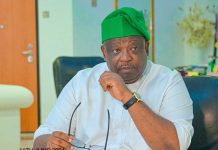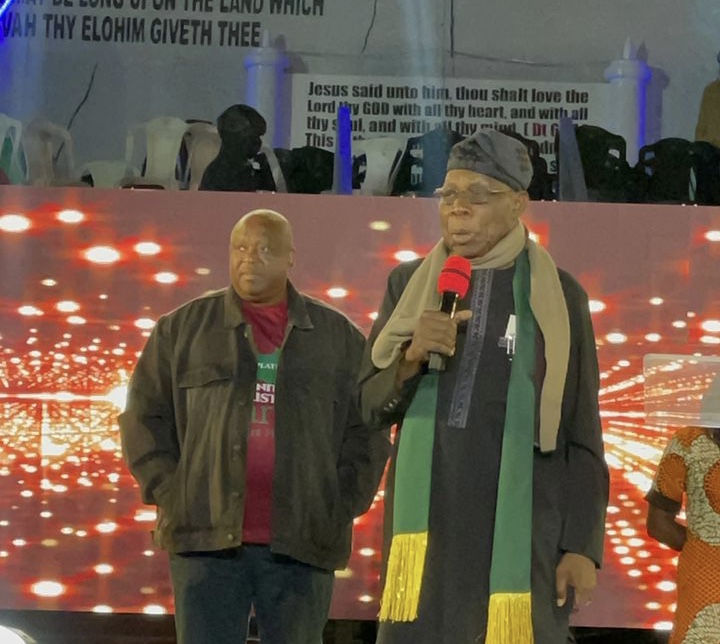By Nick Dazang
LONG before Plateau State bequeathed to itself the ennobling mantra of Home Of Peace And Tourism, it was renowned for its unsurpassed scenic beauty. Its people were friendly and welcoming. Its weather has always been clement. Its diversity was exquisite and a delight to behold. And it has, since its glory and halcyon days, been a melting pot, and a miniature Nigeria.
The genius and gifts of its many peoples were harnessed, adroitly and with sagacity, to put the State in the front rank of development. Jos became a centre of excellence and a magnet for tourists, intellectuals and artistes of different hues. James Brown, Jimmy Cliff, Bongos Ekwue, The Elkados, Dan Maraya of Jos and sundry others added verve to its cultural tapestry. The top notch EMI produced records in Jos. The city was an epicentre of fashion and culture, showcasing attires and movies that were in vogue.
Harmony Brothers, Chanrai, Kaycee, Bata, Lennards, Onigbinde Stores, Kingsway Stores, Leventis, Challenge Bookshop, Modern Bookshop, etc., took turns to vend the latest wear, shoe, household item, car or bestseller. Cinema houses such as Kwararafa, Scala, Rex and Ambassador, screened the latest films from Bollywood and Hollywood at a time when Nollywood was yet to incubate. The construction giant, Messrs Julius Berger, made its first foray outside Lagos in Jos.
Its university, once a campus of the University of Ibadan, brought intellectual panache and attracted such foremost scholars as Ali Mazrui, Jonah Isawa Elaigwu and Omafume Onoge. Theatre was the flagship department, projecting the enthralling beauty of the State and its ambience. Girgis Salama, the Egyptian technocrat, helped in setting up the Benue Plateau Television, BPTV, Nigeria’s first colour television station. Its people were gung ho and can-do-zealots.
By and by, however, and thanks to bad governance, selfishness and obtuseness, Jos has become a byword and a reproach. Its once alluring diversity was mismanaged with recklessness by persons bereft of the gravitas, finesse and large-heartedness of those who came before them. Traducers who had stood in envy, cashed in. They unleashed terror and mayhem on a once tranquil people in the vain hope of sowing confusion and grabbing their ancestral lands. Plateau State thus became a poignant paradox. From a shimmering front rank, it now keeps a darkling rear.
Following the recent affirmation of Caleb Mutfwang as the duly elected governor of Plateau State by the Governorship Election Petition Tribunal, it is only propitious for those who expect him to be a standard bearer to articulate an agenda that should perfuse and inform his administration. In doing this, one is mindful that this may coincide with his party manifesto commitment or be outrightly out of sync with it. The better if it is the latter: After all, as Thomas Paine once remarked: “These are times that try men’s souls…but he that stands by it now, deserves the love and thanks of man and woman”. The challenging times call for thinking out of the box.
To restore its glory, the governor must focus, like the laser beam, on security. This is for the obvious reason that all facets of development are contingent on peaceful co-existence. The farming, commerce, tourism, educational services, etc., for which the State is reputed can only thrive in a placid atmosphere. Apart from rejuvenating Operation Safe Haven, OPSH, the military arrangement enforcing peace in the State, the governor should work assiduously, and in concert, with other agencies to robustly secure the State and imbue it with calm and purpose. The citizens should be mobilised and educated on the need to lay premium on peace, to be alert at all times and to report any untoward or strange activities to the relevant authorities.
Rather than being obtuse or narrow as some of his predecessors were, Governor Mutfwang should run a government of inclusion. All stakeholders in the Plateau Project should be carried along. It is when people feel excluded that they become aggrieved and lend themselves to being used as fodder to undermine the State. But once everyone has a stake, he is obligated to protect it. In such a situation, it becomes difficult for wicked merchants and purveyors of conflict to come in, take advantage of divisions and rend the State to pieces. Once everyone’s interest is considered and taken care of, even the few, who dare to be quislings and blacklegs, will become isolated pariahs.
To reinforce inclusion, the governor must be just and equitable as obtained in the glory days of yore. In those days, such patriarchs and visionaries as the late J.D. Gomwalk and Chief Solomon D. Lar, ensured that projects (with the same designs) were built according to provinces (in the defunct Benue-Plateau) or senatorial zones (when Nasarawa was part of Plateau). Thus, a project built either in one province or senatorial zone, as the case may be, is replicated in the other(s). This engendered amity, equity and fostered a sense of belonging. Governor Mutfwang should find recourse to this sublime template so that no part of the State is marginalised or left out. Apart from enthroning equity and justice, it will banish the clannish “this-is-our-turn” syndrome.
Even as the governor brings back an equitable template for development, he must invest muscularly in these key areas: infrastructure, health, education and tourism. A major and critical road in each senatorial district should be identified and constructed under his watch. Each senatorial district should have at least a Specialist Hospital or Medical Centre with requisite facilities and staffing. Schools should be rehabilitated and tourism facilities provided or upgraded. The Wildlife Park should be addressed forthwith: Its pristine vegetation should be preserved, the gaunt animals frolicking there should be well nourished and cared for and the Park properly cordoned. A hotel of four- or five-star status, with amusement facilities, to boot, can be embedded in the Park. By the same token, the iconic Jos Zoo should be revamped and the Solomon Lar Amusement Park should be replicated in Jos North, East and South.
Like other States, Plateau enjoys a youthful bulge. Most of its citizens are youths. Unfortunately, apart from farming and artisanal mining, most of these youths are unemployed and therefore susceptible to criminality and being used by agents provocateur. The government must fashion out policies that engage the youths positively. For instance, they can be trained and conferred with entrepreneurial skills.
Thereafter, the government, through the Plateau Investment and Property Company, PIPC, can give them loans to start small businesses or to finance startups. Apart from allowing the youths to give vent to their talents, this holds the prospect of triggering multiplier effects which then grow the economy and take the youths away from unsavory and ungainful activities. For the longer term, Skills Development/Acquisition Centres should be set up in each Senatorial District.
Dazang, former Director of Voter Education at INEC, wrote from Abuja







